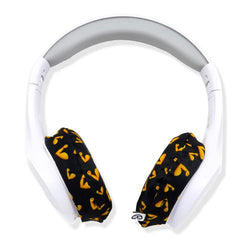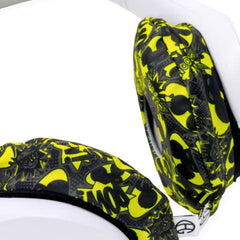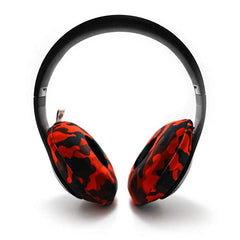How Running Can Make You Sick

I was five days away from running my first half-marathon when I got sick. It was just a regular cough and cold but I felt terrible, and I couldn’t believe the bad timing.
I’m certainly not an elite athlete but my training had gone from a standing start (quite literally) to running regularly for 90 minutes+ in just a few months.
During the last couple of weeks before the event, I was running further and harder than before. I thought it was just bad luck and even worse timing but I’ve since read that intense physical activity can make us more susceptible to respiratory illnesses.
I started running again at the start of the UK’s lockdown, and I have one eye on another half-marathon in the future but it’s a little unsettling to read, given the current COVID-19 pandemic, that long-distance running could mean you’re more vulnerable to getting ill.
Why Does Running Make Us Sick?
Running is good for us.
I was relieved to hear that recreational runners – people running for pleasure rather than for competitions – actually benefit from the immune boosting powers of running.
Tim Noakes, emeritus professor of exercise and sports science at the University of Cape Town told the Irish Times that mild exercise helps in 3 ways: it raises body temperature which can kill foreign invaders, it produces virus-killing proteins, and it increases white blood cells.
These three things can be incredibly powerful in preventing us from getting ill.
Additionally, a review study by the University of Queensland found that light to moderate exercise had either a negligible or a beneficial effect on the body’s immune system. Many of us will fit into that category, and it’s a relief to see that running can keep us healthy, but if you’re preparing for a bout of intense training then your body could be more vulnerable to getting colds or flu-like symptoms.
How Much Exercise is Too Much?
Exercising for 90 minutes+ could lower your immunity for up to 24-hours afterwards. You don’t have to be an elite athlete to be putting a strain on your body. If you think about someone preparing for an event, a competition or a race, then 90 minutes isn’t all that long.
How Does Running Make Us Sick?
Over-exercising creates inflammation in the body and the body reacts to this by sending out stress hormones. When the training is done (or when it levels off) the immune boost from that exercise tapers off at a faster rate than stress hormones do. This leaves you more vulnerable to illness.
If you’re under stress when you’re running long distances, then that can compound your vulnerability. It doesn’t just have to be stress in your personal or professional life, either. You could be anxious about your training or nervous about an upcoming event or marathon. If you’re eating badly, too, and not getting enough sleep these can open you up to ill health.
Competition runners should think, too, about how the events they’re running in can pose a health risk. The starting line and the holding area means people are packed pretty close to one another. If we’ve all learnt anything about COVID-19, it’s how easily large groups of people in close contact with one another can play a big role in spreading illness. If you’re already vulnerable because you’ve been training hard, then it’s no surprise why so many runners complain about feeling ill after events have ended.
Can Running in the Cold Weather Make You Ill?
Running in cold weather – even in really cold weather – won’t make you ill so long as you’re dressed appropriately. Going out in very low temperatures can be dangerous if you don’t know what to wear or how to keep yourself warm. The key is keeping your body temperature at a safe level and that usually means thermal base layers, gloves, thick vests, socks, hats and scarves. If your body temperature drops, then you will be more susceptible to picking up illnesses afterwards. If you’re underprepared or careless when running in very low temperatures, then you could be risking more than just catching a cold.
Does Everyone Agree that Running Can Cause Illnesses?
No, not everyone agrees that intense training hurts the immune system. Research is now looking at whether the evidence used in previous studies is accurate enough to point towards intense exercise as causing illness in runners. One problem is that you can’t always trust participants to self-test accurately. We all know what it feels like to have cold or flu-like symptoms but there could be other factors at play rather than a viral infection. It could be allergies or just exhaustion from a recent intense physical effort.
The New York Times points out that most people would probably confuse a scratchy throat with a cold. We might be feeling a little run-down but that doesn’t mean its our immune system that’s failed us.
How Can we Reduce our Chances of Getting Sick?
-
You should regularly review your training schedule to make sure you’re not over-training and be sure to build in regular rest days.
-
Many researchers talk about a ‘two-hour’ window after intense exercise where the body is vulnerable to infection. It won’t hurt you to be extra careful during this period with handwashing, keeping clear of sick people and avoiding public transport.
-
You should make sure you’re having a healthy diet including enough vitamin C and A.
-
Sleep is so important in keeping us in optimal condition so make sure you’re getting 7+hours as often as you can and especially in advance of a long-distance session.
-
Put some of the recent COVID-19 prep to good use and after long runs wash your hands regularly and avoid touching your face.
-
Avoid sharing water bottles and towels with other people.
Research does suggest that intense exercise can increase your risk of getting sick. You may only catch a cold but that can put a serious dent in your training and anyway, nobody likes being ill.
Running has so many benefits so the answer isn’t to stop running, but just to remember that what we do and how we exercise can affect our bodies often for the better, but sometimes for the worse.
Did you also know that sweat can make your headphones sick?
Before you exercise in your headphones, add moisture-resistance covers to your earpads.





